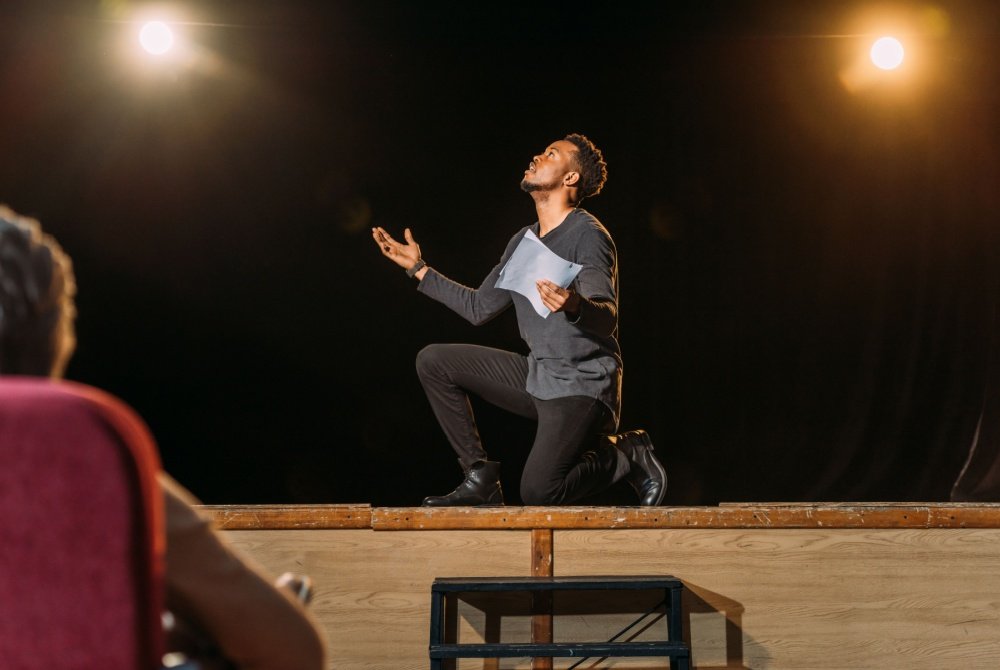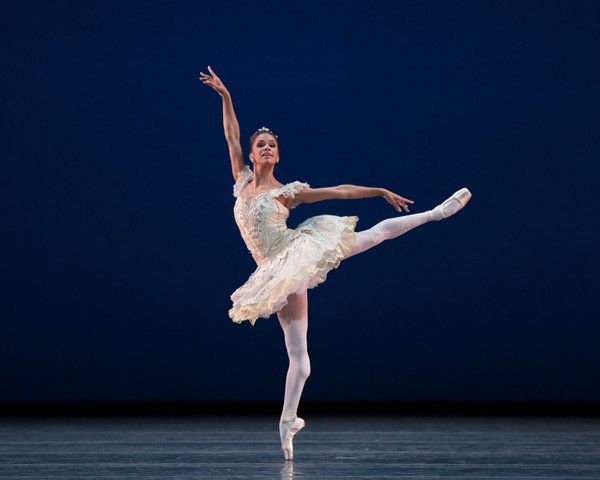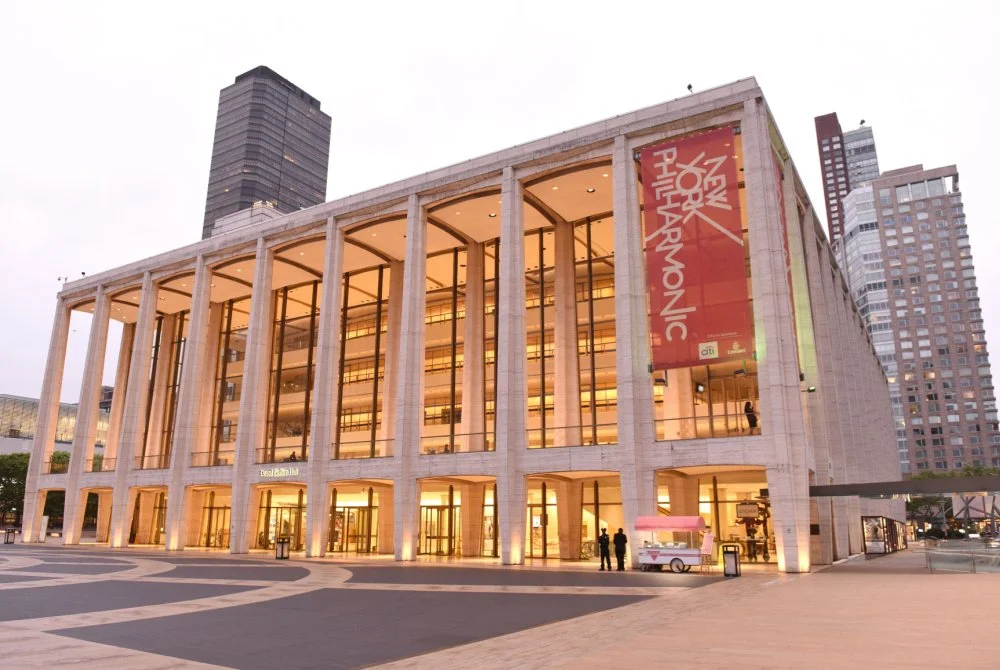Never Mind Those Stingy Techies. These Funders Keep Giving for "Highbrow" Arts
/There's a glum narrative about arts fundraising that suggests that younger new donors, especially from tech, aren't interested in giving to the arts; that legacy foundations are ever less interested in funding the arts, except to advance social justice; and that corporate funders are also pulling back support. Add all this up, and it suggests a pretty bleak future for the arts.
In fact, though, things aren't nearly as bad as that apocalyptic vision suggests—even in the Bay Area, where many tech donors have embraced an ethos of "effective altruism" that can seem downright hostile to the arts.
The Koret Foundation's recent arts and culture give underscores an encouraging trend in this cash-flush region. While the tech monied classes may be cool to the arts, other Bay Area funders have been stepping up over the past few years. We've written often, for example, about the emergence of the Kenneth Rainin Foundation as an important arts funder in the region; this foundation didn't even exist a decade ago.
Another example is the William K. Bowes, Jr. Foundation. Recently, Ute Bowes made a $46.4 million gift through the foundation—named after her late husband—to support the expansion of the San Francisco Conservatory of Music's (SFCM) campus and the construction of the Ute and William K. Bowes, Jr. Center for Performing Arts (The Bowes Center). The $185 million performing arts center and residential tower will be located at 200 Van Ness Avenue and construction will begin in the summer of 2018.
According to the conservatory, it is the largest single gift ever made to a conservatory or music school for a new facility. It also maps perfectly to the Bowes Foundation's "big giving, low profile" brand of philanthropy, as we've described it in the past.
Bowes was a venture capitalist, philanthropist, and co-founder of U.S. Venture Partners. He passed away in 2016 at the age of 90. Ute Bowes owns Ferry Plaza Seafood, a San Francisco restaurant. The William K. Bowes, Jr. Foundation was established in 1991. Its primary funding areas include higher education, medical research, and the arts. As of a few years ago, the foundation held more than $350 million in assets and gave away roughly $40 million annually. The foundation's website was a single page. It still is.
In December 2016, Bowes made a $50 million pledge to the University of California San Francisco's Bowes Biomedical Investigator Program. The gift, Bowes' largest ever to the school, brought his total giving to UCSF to nearly $100 million.
The foundation's most recent gift to the SFCM shares the same level of ambition.
The new building will provide a "completely integrated environment where students will live, learn, rehearse, perform, socialize, and engage the larger community," said designer Mark Cavagnero, echoing proponents of the "undergraduate living-learning experience" in the higher ed space.
Plans for the SFCM building call for housing for 420 students, two concert halls featuring hundreds of performances annually with over 90 percent of them free and open to the public, a restaurant with a live performance space, multiple classrooms, a recording studio, a "technology hall," and rent-stabilized residential units in the center of the most expensive city in the country. The opening of the new building is slated for the fall of 2020.
This is the kind of big brick-and-mortar investment we typically see at cultural institutions in Los Angeles or New York City. And yet the money is flowing to a conservatory in a city whose tech plutocracy continually passes on the arts, much to the chagrin of the region's besieged "highbrow" organizations. What gives?
Well, the takeaway here is pretty simple. There's more to the Bay Area arts funding ecosystem than disinterested tech donors. The Bowes gift comes on the heels of other significant arts-related gives from the region's institutional ranks.
A few months before Koret Foundation's $10 million arts and culture commitment, the William and Flora Hewlett Foundation announced its new Hewlett 50 Arts Commissions, which will allocate $8 million over five years. Earlier this year, the Rainin Foundation announced the winners of its open spaces public art program. And regional stalwarts like the Fleishacker, Zellerbach, and the Ann and Gordon Getty Foundation remain devoted to arts-related causes.
With the exception of Yahoo! co-founder Jerry Yang and his wife, Akiko Yamazaki's $25 million gift to the Asian Art Museum in San Francisco— the New York Times' Jori Finkel called it "a rare example of high-level cultural philanthropy from Silicon Valley’s entrepreneurial elite"—most major arts-related gives in the region continue to flow from non-tech sources.
There is an underlying logic to this dynamic.
Consider the historical context at play here. Highbrow arts organizations in the region—think ballet, museum, orchestras, conservatories, etc.—have been receiving support from institutional funders since long before the tech boom in the 1990s. Hewlett, for example, has given more than $335 million in grants to arts organizations since 1967.
In other cases, the patron himself is an integral part of the region's highbrow arts ecosystem. Gordon Getty earned a bachelor of arts degree from the very same San Francisco Conservatory of Music, and is a renowned classical composer.
What has changed is the extent to which funders are helping highbrow organizations navigate the profound demographic changes affecting how they engage audiences. SF Ballet Marketing Director Mary Beth Smith sums up the challenge most succinctly, noting, "Our competition isn't the opera or the dance company down the street—it's anything audiences can do with their leisure time."
In other words, more traditional, arts-friendly donors have been here all along, and it's only natural that they'd double down on their support for beleaguered arts organizations in the face of rampant gentrification, distracted millennials, and nonplussed tech donors.
The Bowes gift to a performance arts center fits squarely within this narrative.
Its namesake was born in 1926. His foundation ramped up almost 30 years ago, a decade before the first dot-com bubble. He was an SFCM trustee for 22 years. His previous support included founding two groundbreaking programs, Technology and Applied Composition, and Roots, Jazz, and American Music, in addition to adopting a new curricular structure.
It's a textbook psychographic profile of "old world" giving. And yet the foundation, like its institutional brethren, is also helping organizations like the SFCM change with the times. You'll recall that plans for SFCM also call for a flurry of free performances. This is incredibly important in a city where highbrow organizations are turning to accessible and casual arts experiences to engage millennials and the region's nouveau riche residents.
It's only fitting to let William Bowes have the last word.
In a Bay Area giving environment where tech donors search for an elusive return on investment in the "arts experience" and effective altruists measure success based on "lives saved per dollar," Bowes saw things differently.
In 2016, SFCM honored Bowes at its annual gala with an evening of performances and a video tribute. In an interview, Bowes succinctly got to the heart of his lifelong affinity for music education and with it, his extensive track record of giving to arts-related causes.
"Music makes me happy," he said.







































